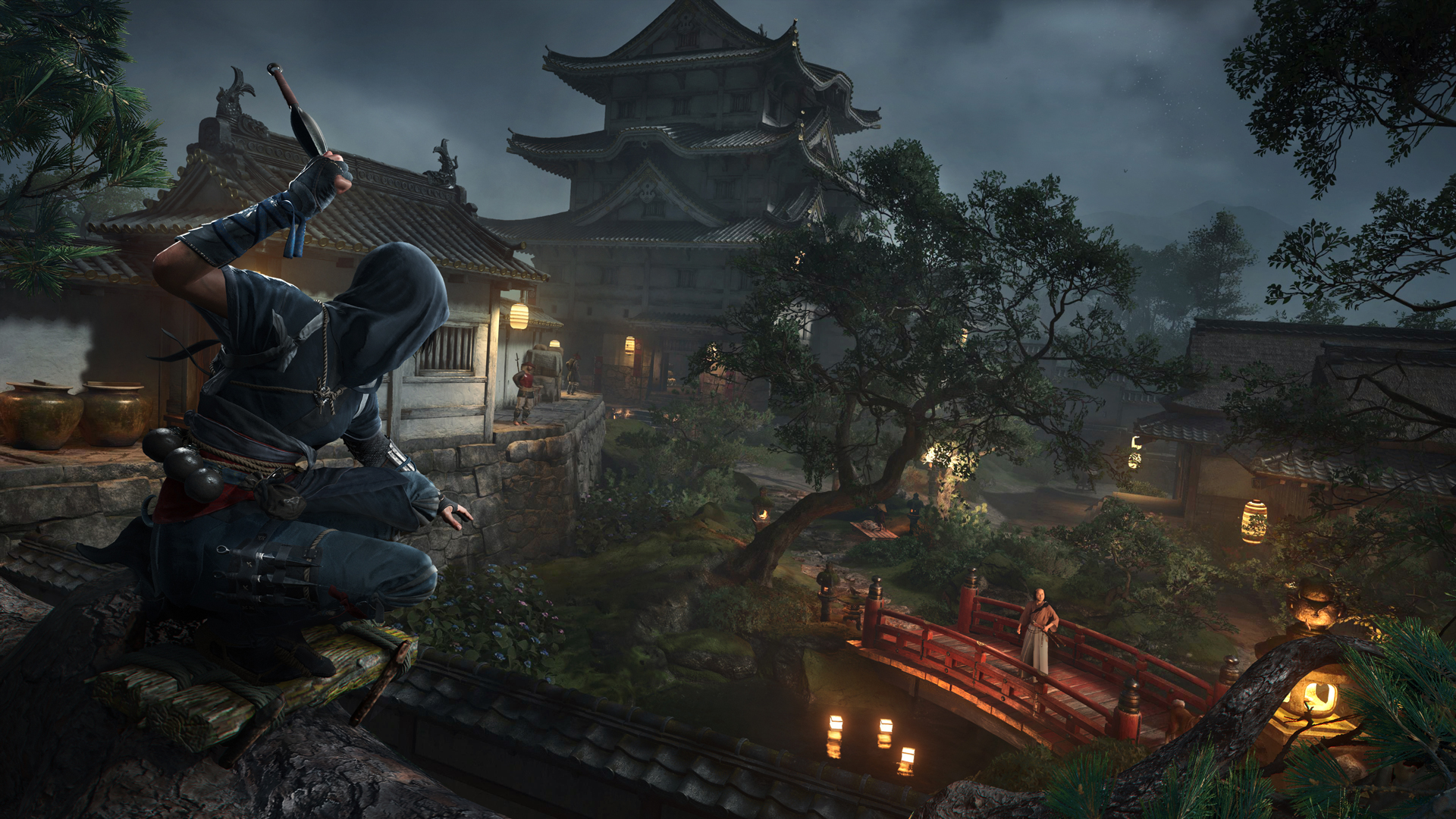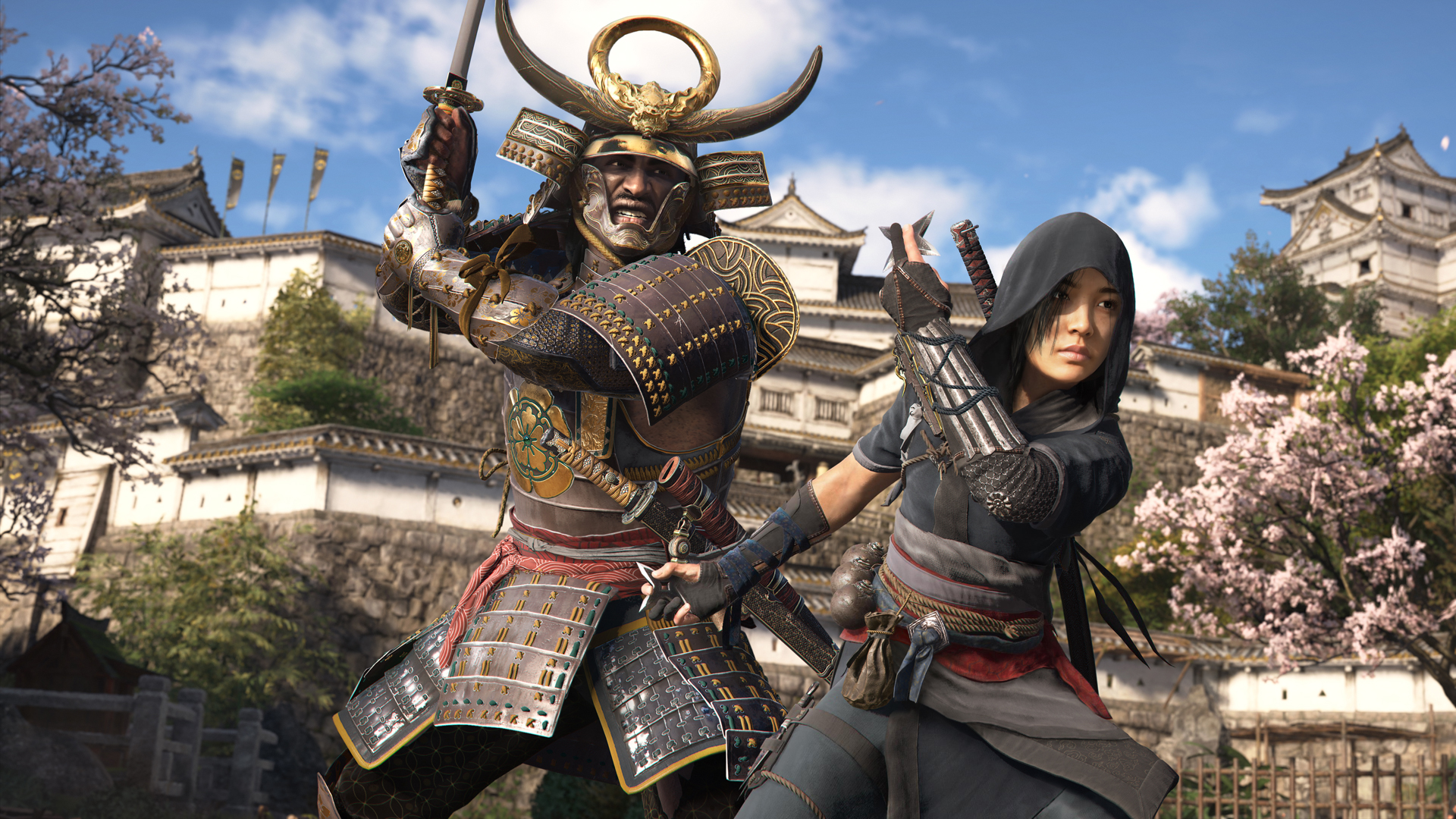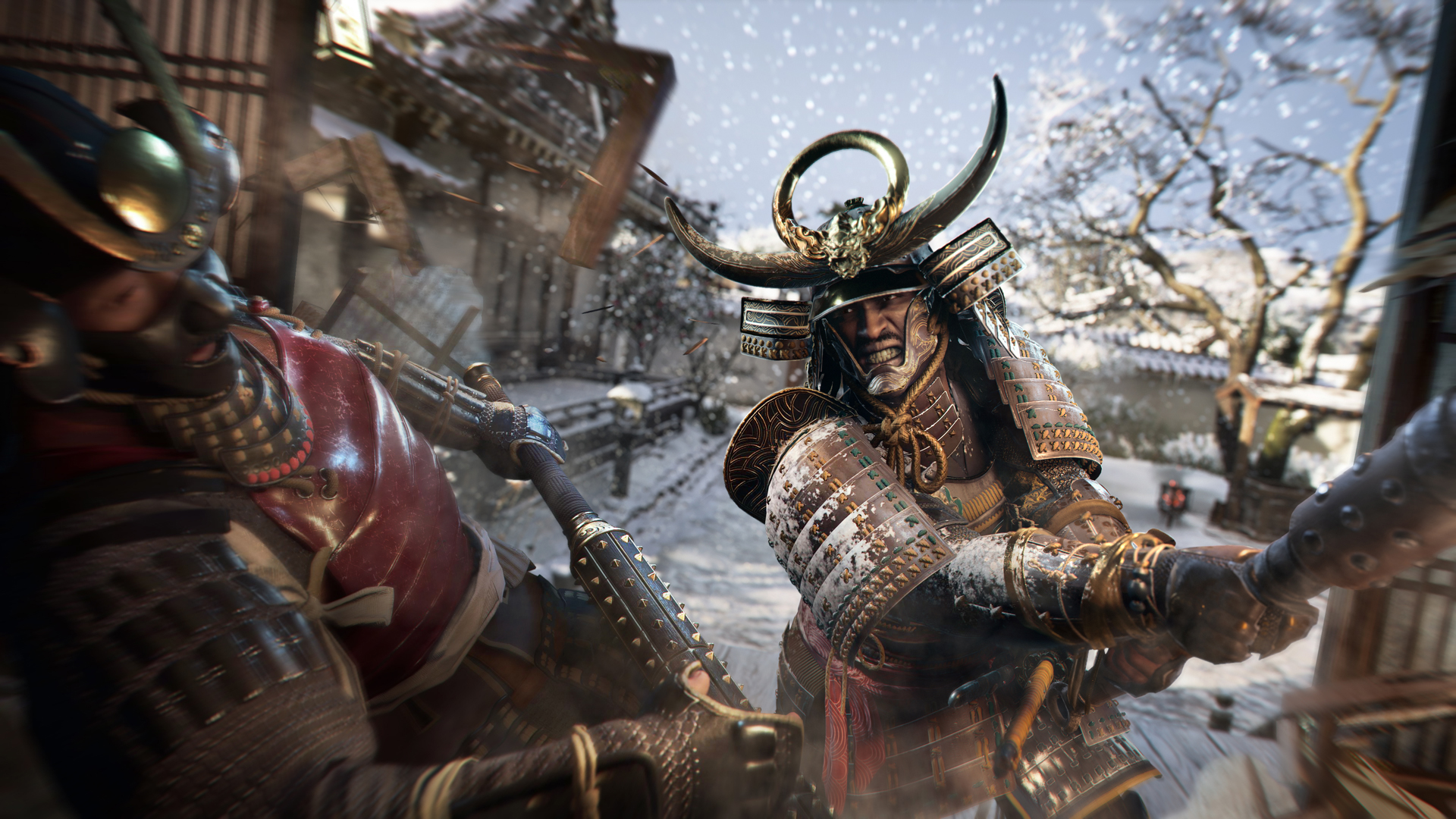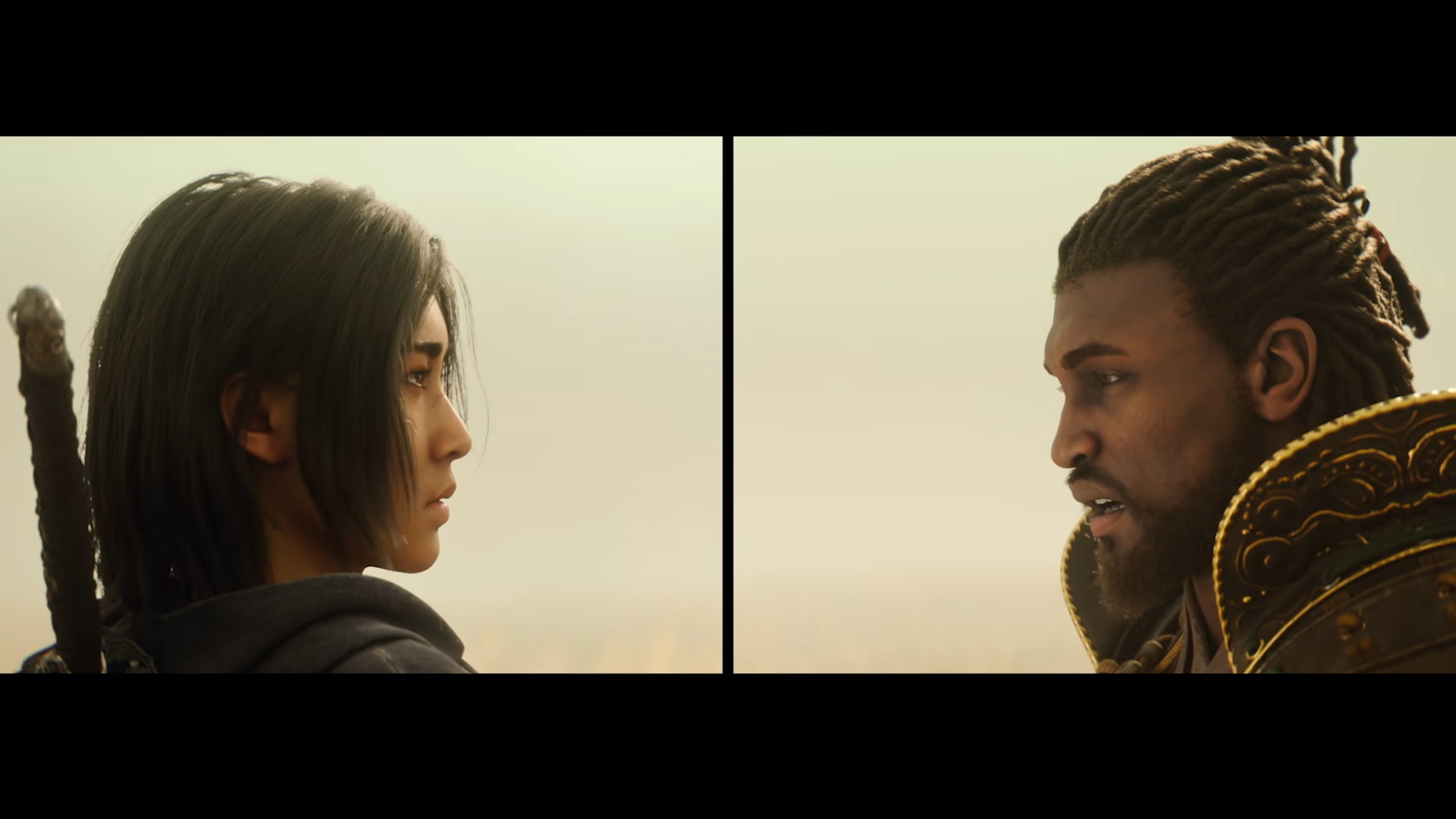
Assassin's Creed is a franchise at its best not merely for the ways it brings the past to life, but for how it uses historical fact as a basis for new ideas that enhance the experience. With Assassin's Creed Shadows finally taking the series to the final throes of Sengoku-era Japan, it appears that Ubisoft is doing just that.
To be clear, debates discussing the 'historical accuracy' or validity of a Black samurai as one of dual protagonists for this latest Assassin's Creed are fueled more by modern political ideas than historical fact. Although gaps in knowledge make it impossible to know his full story, everything from surviving written accounts to artwork of the period note Yasuke's arrival in Japan and time as a trusted retainer to the first of the 'great unifiers' Oda Nobunaga, and later his son Oda Nobutada.
Much of this discussion has not been motivated by a desire to learn more about someone whose historical legacy is matched by a pop cultural exploration that has already been portrayed in games like Nioh, films, Japanese TV dramas, and more, spanning decades. It's also a discussion disinterested in what a samurai like Yasuke, or indeed a shinobi like Naoe, can bring to the franchise as it returns from a multi-year hiatus in mainline releases.
Shinobi, samurai and Oda Nobunaga

One key way Assassin's Creed Shadows promises to use its setting and grasp of history to enhance the experience is through its two protagonists. Rather than creating two sides of the same coin, our protagonists represent different ways of life amidst a complex and ever-changing conflict. At times side by side and at others opposed, each with their own talents.
If Yasuke is to represent the samurai, Naoe, the fictional daughter of one of the shinobi family Iga Ikka's real-life leaders Fujibayashi Nagato, represents the shinobi. The shinobi were ninjas known for their stealth, but their role in the Sengoku Period in particular makes them far more than a Japanese parallel to an assassin. Commonly, shinobi of the era would gather intelligence and infiltrate enemy strongholds and armies on behalf of generals throughout Japan, assisting samurai and their leaders by undertaking activities in dozens of areas throughout the 16th century in return for protection and money for their diverse agriculture and land.
They would provide the information needed for generals, but also undertake their own attacks at their request. One existing recorded example comes from 1541 when they acted on behalf of Miyoshi Chokei alongside allies in the Koka Ikka to infiltrate Kasagi castle and set fire to the settlement, one of many examples of shinobi sneaking freely into enemy castles to gather intel or cause disruption.
The Sengoku Period was one defined by alliances and many sources of power all fighting for ultimate control over the whole of Japan. The period the game is set in is defined by samurai daimyo like Oda Nobunaga and Tokugawa Ieyasu, a fellow lord Nobunaga aligned with before later becoming first ruler of the Tokugawa Shogunate to ultimately assume control at the end of the civil war era. Together the pair were able to control just under half the country in areas inclusive of and south of modern-day Tokyo by the early 1580s.
Of this uneasy alliance, Ieyasu is believed to have aligned himself with some of the shinobi, particularly the Iga Ikka. Nobunaga, meanwhile, was less trustworthy, and wiped out the Koka Ikka in the early 1570s along with much of the Iga Ikka between 1579 and 1581. Those that survived later served under Tokugawa Ieyasu and the Tokugawa Shogunate. Notably, Assassins Creed Shadows' story begins in 1579, the same year Yasuke arrived in Japan.
What does this mean for Assassin's Creed Shadows?

In early developer discussions surrounding the new protagonists in Assassin's Creed Shadows, the conflict between Nobunaga and the Iga Ikka is referenced as creating a unique tension between our dual main characters. Beyond the choice to feature two protagonists of notably different loyalties, it brings the potential to fuse common mechanics of the series with the traits of the samurai and shinobi for greater variety.
The actions of the shinobi already align well to the planned reintroduction of the assassin recruitment system in the form of the spy network to gain intel for strategic advantage. The contrast between the stealthy nature of the shinobi and strength in combat of the samurai brings gameplay variety between the two protagonists, a noted departure from other Assassin's Creed titles where such differences are more subtle or non-existent. Yet the capabilities of shinobi to take on numerous roles in a mission and go beyond mere stealth, as seen in the 1541 attack on Kasagi Castle and other recorded cases, makes them far more versatile for more dynamic potential gameplay opportunities.
With Yasuke existing as an outsider brought to Japan, yet integrated into Nobunaga's inner circle to contrast with Naoe who's under threat from this army, these characters interacting not only reflects the complexity of alliances and allegiances in the era, but also the shades of gray and betrayal. It allows for the series' trademark artistic license with alternative history involving Templars to seamlessly integrate into the gaps within the first-hand documented history that survived.
Provided that this history is handled with care, the discussion we should be having around Assassins Creed Shadows has nothing to do with the so-called lack of historical accuracy. As Ubisoft attempts to turn this fascinating era of Japanese history into an entertaining gameplay experience and approachable gateway to historical Japan, it feels prudent to avoid a glorification of power-hungry militancy and fictionalized understandings of bushido that differ from reality and have historically been weaponized to justify military action, discrimination, and violence - from the militarization of parliamentary democracy towards war in the image of the Emperor in the early 20th century, to today's modern political landscape.
Handled correctly, Assassin's Creed Shadows has the potential for greatness, but can it deliver? We won't have to wait long to get answers, with new gameplay being promised at Summer Game Fest ahead of a release in November. By embracing Japanese history in this tumultuous era, Ubisoft has the potential to bring us a game that can stand apart from contemporaries and prior entries, while providing a new perspective on Japanese history and an entertaining experience in equal measure.
Here are all the upcoming Assassin's Creed games we have to look forward to in the future.








